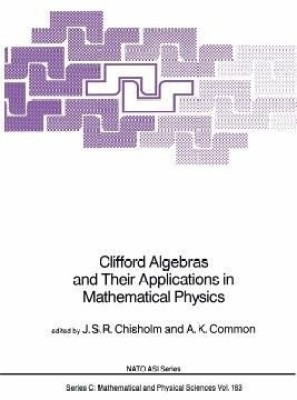Clifford Algebras and Their Applications in Mathematical Physics(English, Paperback, unknown)
Quick Overview
Product Price Comparison
William Kingdon Clifford published the paper defining his "geometric algebras" in 1878, the year before his death. Clifford algebra is a generalisation to n-dimensional space of quaternions, which Hamilton used to represent scalars and vectors in real three-space: it is also a development of Grassmann's algebra, incorporating in the fundamental relations inner products defined in terms of the metric of the space. It is a strange fact that the Gibbs- Heaviside vector techniques came to dominate in scientific and technical literature, while quaternions and Clifford algebras, the true associative algebras of inner-product spaces, were regarded for nearly a century simply as interesting mathematical curiosities. During this period, Pauli, Dirac and Majorana used the algebras which bear their names to describe properties of elementary particles, their spin in particular. It seems likely that none of these eminent mathematical physicists realised that they were using Clifford algebras. A few research workers such as Fueter realised the power of this algebraic scheme, but the subject only began to be appreciated more widely after the publication of Chevalley's book, 'The Algebraic Theory of Spinors' in 1954, and of Marcel Riesz' Maryland Lectures in 1959. Some of the contributors to this volume, Georges Deschamps, Erik Folke Bolinder, Albert Crumeyrolle and David Hestenes were working in this field around that time, and in their turn have persuaded others of the importance of the subject.


